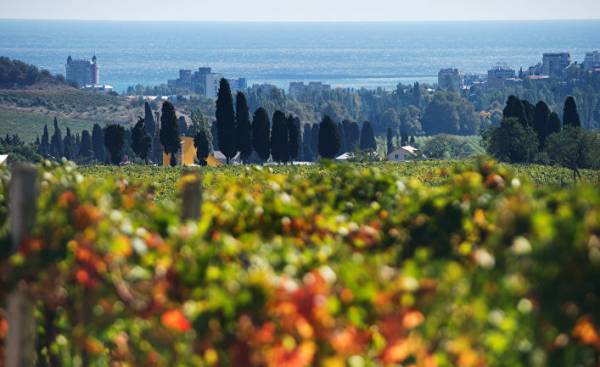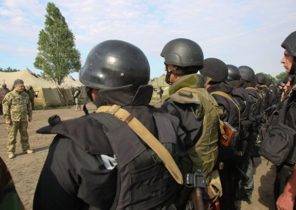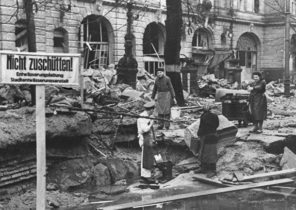
16 March 2017, three years have passed since the illegal referendum in the Autonomous Republic of Crimea and Sevastopol about joining Russia. The process of annexation of the Ukrainian Peninsula ended 21 March 2014, when the State Duma approved Russia’s violations of fundamental principles of international law. The event had a significant impact on Ukraine and world politics.
The third anniversary of the annexation of the Crimea gives you the opportunity to analyze the steps taken by Ukraine and the international community for the return of the Peninsula.
From the very beginning Ukraine has chosen non-military methods of return of the Crimea, in early 2014, the armed forces of Ukraine was objectively unable to counteract the second army of the world in terms of combat capability. In turn, the military weakness of Ukraine was the result of corrosion of the power structures under the action of corruption, inadequate public funding, and Russian agents of influence.
In February and March 2014 Ukraine carried the Crimean crisis for the consideration of the UN Security Council on the grounds that the aggression of Russia poses a threat to international peace and security. However, Russia as a permanent member of the UN Security Council blocked the resolution condemning the illegal referendum in Crimea.
At the same time on the initiative of Ukraine, the UN General Assembly adopted two resolutions on Crimea. So, in March 2014 adopted a resolution on the territorial integrity of Ukraine, which recognized the referendum in the Crimea illegal, and in December 2016 on the situation of human rights in the annexed Peninsula, where Russia for the first time at the UN was named as the state-occupier and responsible side of human rights.
Another instrument of de-occupation of Crimea began international arbitration. In particular, after the start of Russian aggression Ukraine announced the recognition of the jurisdiction of the International criminal court (ICC) regarding crimes committed on the territory of our state from 27 February 2014. In November 2016, was published the report of the Prosecutor of the ICC, which equates the establishment of military control of Russia over the Crimea to the international armed conflict. Under international humanitarian law, under international armed conflict is considered a situation where the occupying state even does not encounter armed resistance.
In addition, in January 2017 Ukraine has filed a lawsuit in the international Court of justice against Russia on violation of its Convention for the suppression of the financing of terrorism and the Convention on the elimination of all forms of racial discrimination. The appeal of Ukraine to the second Convention is related to the policy of the Russian occupying authorities on the Crimean Tatar and Ukrainian communities in the Crimea.
Although Ukraine has high chances to win in both instances, yet effective mechanisms that would have forced Russia to implement the decisions of international tribunals. So, after the publication of the report of the Prosecutor of the ICC Russia announced its withdrawal from the Rome Statute of the ICC. In addition, the implementation of the decisions of the International Court of justice is complicated by the fact that the aggressor state has a veto in the UN Security Council and could block a resolution of the relevant constraints.
Ukraine’s attempts to rely on the US and UK as signatories of the Budapest Memorandum was beforehand hopeless. First, the Budapest Memorandum, according to their legal nature is not an international Treaty and does not entail any obligations. Second, in the Budapest Memorandum stated that the United States and Britain “will consult in the event of a situation which raises a question concerning these commitments”.
Sanctions against Russia was the only instrument used four dozen countries around the world to support Ukraine. At the same time, “painful” sanctions against Russia were not associated with the annexation of Crimea and armed conflict in the Donbass.
Although the annexation of the Crimea was recognized only 11 countries in the world, the vast majority are not ready to provide Ukraine with political support. So, sanctions against Russia were imposed by the EU countries, USA and Canada, Japan, Australia and some other States, which are associated with the West. In addition, a vote in the UN General Assembly showed that most countries are completely indifferent to gross violation of the UN Charter over the first “Crimean” resolution, 100 States voted for the second — 70. This shows that most of the countries of the world or want to maintain a profitable partnership with Russia or do not want to get involved in the conflict, which does not represent for them an immediate threat.
In turn, Russia rejects all international negotiations on Crimea, as the Peninsula question “solved”.
Thus, all the steps taken by Ukraine and the international community in response to the annexation of Crimea, have failed. Ukraine has no possibilities to return the Crimea in the near future. The chances of Ukraine to the return of lost territories will grow only after a fundamental change in the international position of Russia. For example, France was able to regain Alsace and Lorraine 47 years after military defeat of Germany. Not waiting for the decline of Russia or other international circumstances, Ukraine should focus its efforts on building a strong and competitive economy, an efficient army and an efficient public administration. If Ukraine will hold a number of successful changes within the state, its “soft power” could over time seriously undermine the loyalty of the Crimean people to Russia.
Evgeni Yaroshenko — the expert of the International centre for policy studies.







